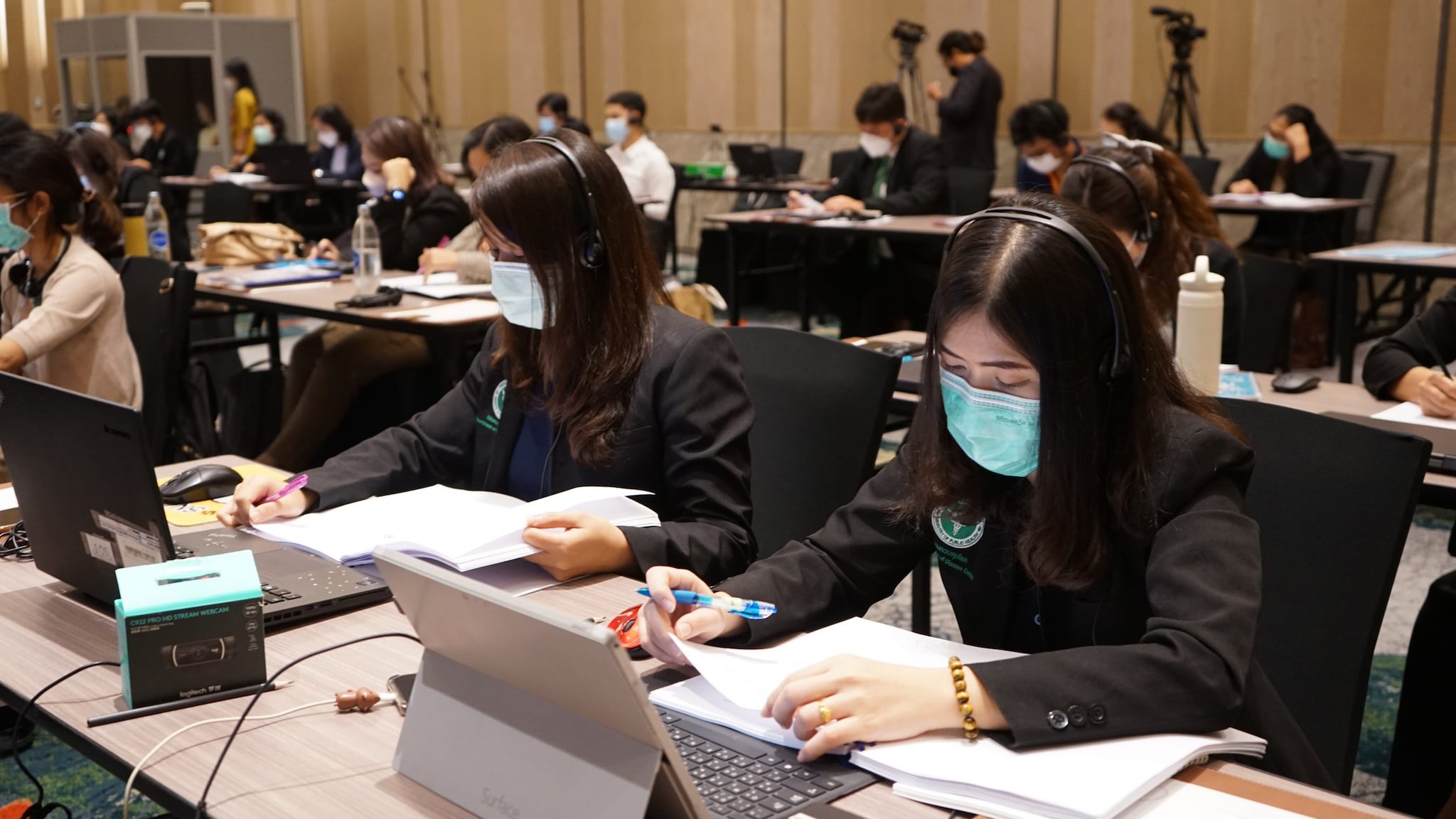At a glance
CDC helps countries and regional partners develop emergency management programs through direct technical assistance. CDC's experts help countries establish their own public health emergency operations so that countries can lead and manage fast, coordinated responses when outbreaks or disasters happen.
Strengthening PHEM Capacity in DRC

The Democratic Republic of the Congo (DRC) continues to face multiple public health emergencies. CDC coordinated sessions of the PHEM executive level training for the Ministry of Health's (MoH) 43 national and provincial decision-makers.
Building on the established relationship between Cameroon and DRC's MoH, CDC coordinated the facilitation of in-person training with Cameroon's PHEM Fellow alumni and the Director of Disease Control. The training was organized into three modules and included a session on Cameroon's experience with adapting the PHEM model. After the training, DRC MoH focused on the following points:
- Expand the number of people trained in PHEM.
- Continue the technical support of Cameroon's experts.
- Involve DRC PHEM Fellow alumni in the implementation of DRC's PHEM program.
- Integrate other sectors in the development of the PHEM program.
- Use Incident Management System (IMS) even if the public health emergency operations center PHEOC is not functional.
- Develop an action plan immediately.
Visit to Thailand

Members of the CDC emergency management team traveled to Hua Hin Province, Thailand, in late March 2022 to facilitate the Ministry of Public Health's (MOPH) Threat Hazard Identification and Risk Assessment (THIRA) workshop. As the Thai MOPH began developing capacity at the sub-national level, which includes 13 regional health offices, they wanted to conduct a formal risk assessment to ensure their preparedness for threats impacting the provinces in their regions.
Sixty participants from 13 regions completed the THIRA workshop. Participants identified and prioritized threats affecting human health in their provinces and identified unique threats. Common threats included COVID-19, Dengue fever, chemical spills, road traffic accidents, air pollution, and flooding.
CDC met with leaders to discuss the implementation of a regional Public Health Emergency Management (PHEM) Fellowship for Southeast Asian countries.
CDC Support to Uganda's COVID-19 Response

The CDC Office in Kampala, Uganda, asked CDC technical advisors to provide IMS training to two groups of Ministry of Health staff that support the Uganda COVID-19 response. During the first week of training, the senior members of the Uganda COVID-19 Response discussed how they utilized IMS to coordinate and communicate. They also identified ways to better implement the principles into their activities.
During week two, members from regional and district level PHEOCs participated in basic IMS training. It emphasized the value of objective-based response activities and how their actions support those at the national level during response operations.
During both sessions, participants shared how the training helped them better understand their roles, responsibilities, and methods for applying IMS to support the COVID-19 Response.
The CDC Office in Kampala, Uganda, asked CDC technical advisors to provide IMS training to two groups of Ministry of Health staff that support the Uganda COVID-19 response. During the first week of training, the senior members of the Uganda COVID-19 Response discussed how they utilized IMS to coordinate and communicate. They also identified ways to better implement the principles into their activities.
During week two, members from regional and district level PHEOCs participated in basic IMS training. It emphasized the value of objective-based response activities and how their actions support those at the national level during response operations.
During both sessions, participants shared how the training helped them better understand their roles, responsibilities, and methods for applying IMS to support the COVID-19 Response.
CDC Training in Zimbabwe

In August 2021, CDC Zimbabwe requested CDC's help in strengthening its capacity to detect and respond to outbreaks through the Field Epidemiology Training Program (FETP) platform. The idea was to teach in-country FETP instructors basic PHEM information so that they could incorporate it into their curriculum.
CDC assembled a team to assist in a virtual train-the-trainer session that was held in March 2022. The session focused on PHEOC and PHEM information and coordination, IMS, and response operations.
The CDC team utilized a case study based on a real-life typhoid outbreak in Tajikistan to create a group activity that incorporated PHEM-related questions. At the end of the training, FETP instructors were asked to think of ways they could incorporate the information into their FETP lesson plans. Zimbabwe FETP instructors are excited and looking forward to adding PHEM into their training.
